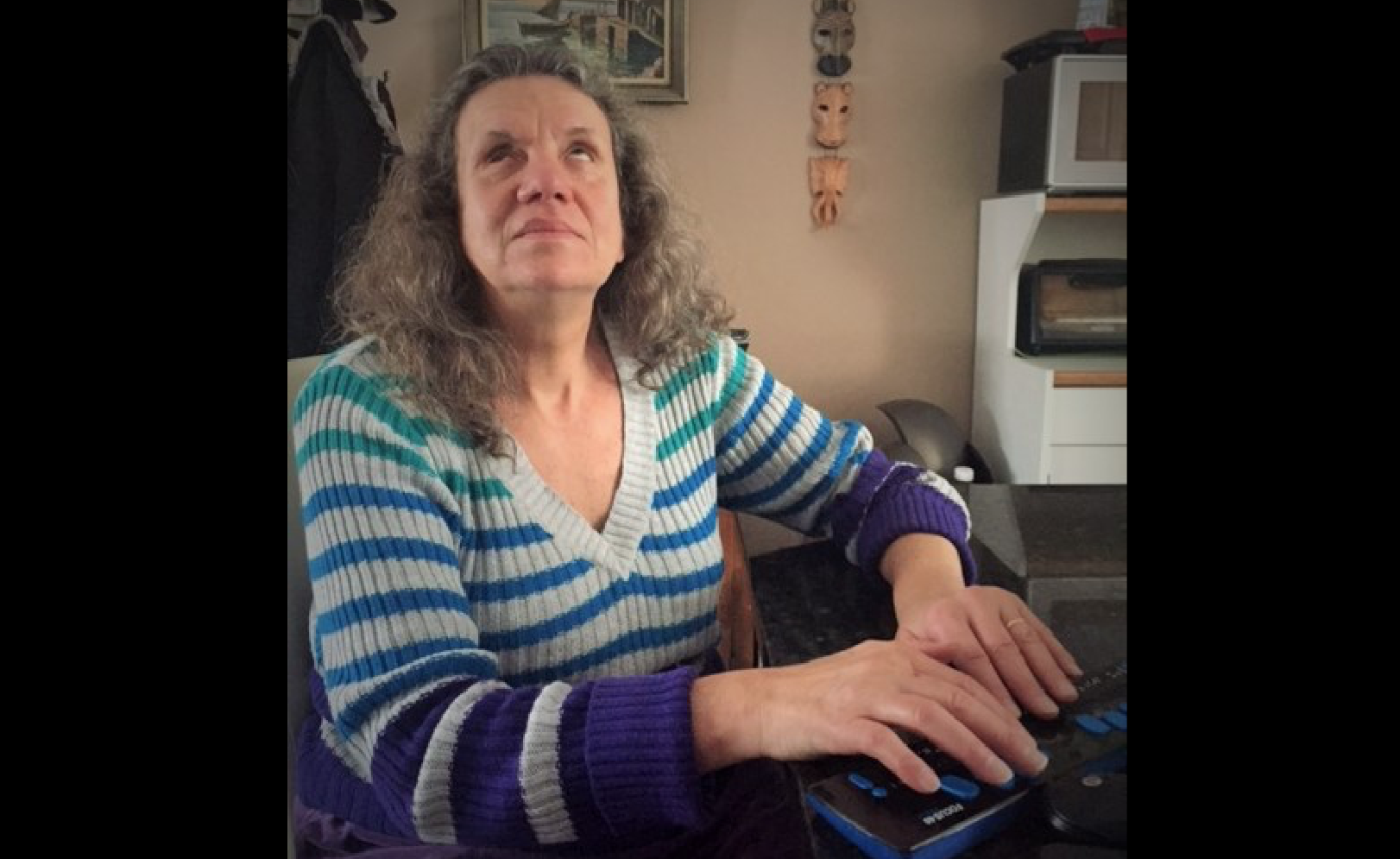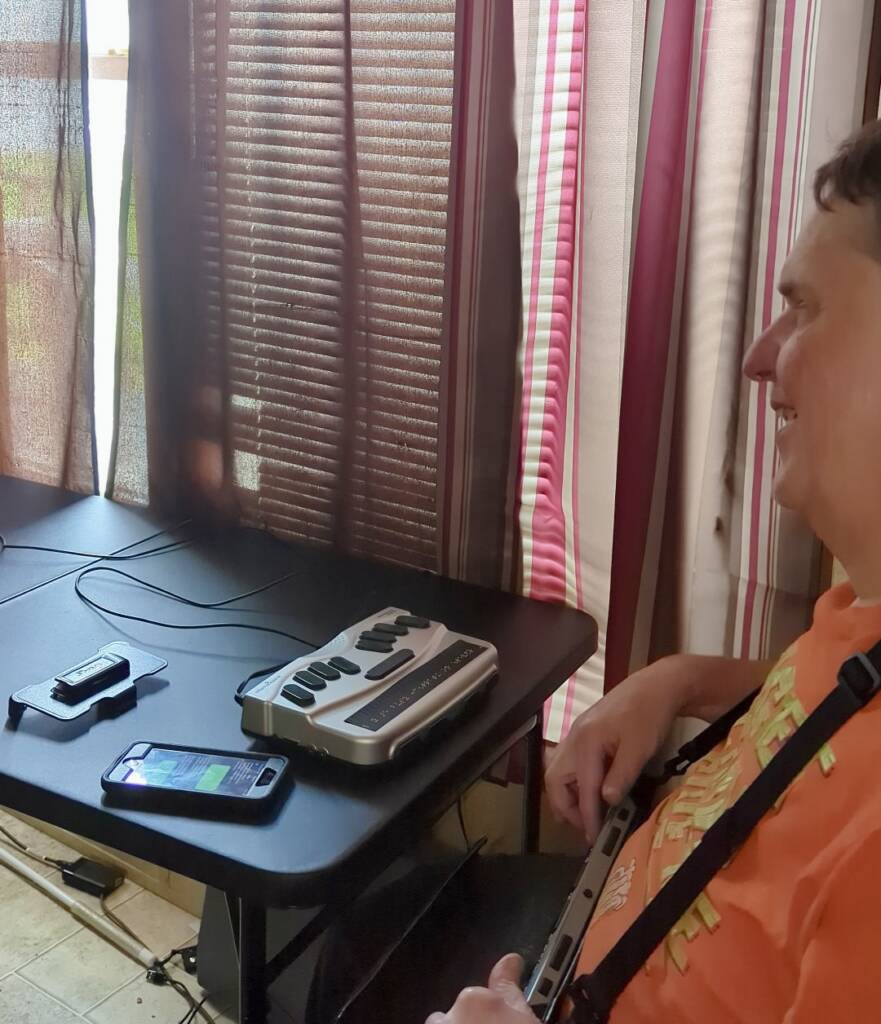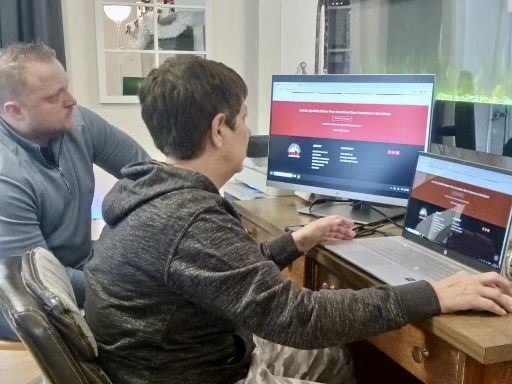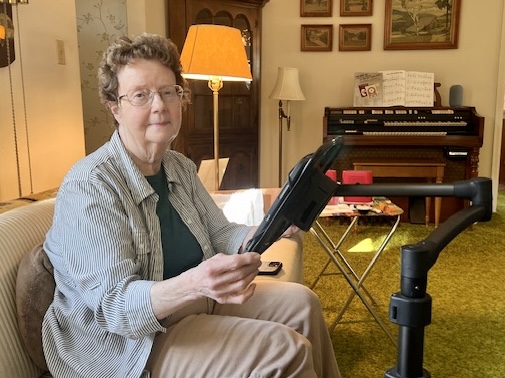Elaine Ducharme, 60, still remembers struggling to write letters by hand and mail them to her family.
Now, the Waltham, Mass., woman – who was born deaf with Usher Syndrome and lost her vision by age 27 – enjoys emailing her siblings, who live out-of-state.
“My parents have passed and I’m the oldest, so I want to make sure my siblings are doing ok,” said Ducharme, speaking through an interpreter. “I like it now because I can be in communication with everyone all the time.”
Ducharme communicates with her family and friends using equipment she received through iCanConnect, also known as the National Deaf-Blind Equipment Distribution Program.
She first learned about the program through a friend in 2012, and after applying for the program, she received a Braille Plus 18. She loved the email-to-talk feature. “It was very easy to use,” she said.
She has since received laptop and desktop computers, with Focus 40 Braille Displays, as well as an Apple iPhone 6. “I use them to stay connected with family, friends and co-workers, at home and when traveling for work,” said Ducharme, who has served as the program director for The DeafBlind Community Access Network (DBCAN) at DEAF, Inc. in Boston for the past 15 years.
She still sometimes struggles with her iPhone, and is pursuing more training and practice with the device. Her brother, who lives in Seattle and who is also deaf-blind, is more technologically savvy than her, she joked.
“He learned so fast, and I was like a turtle,” she said. But keeping up with her brother and two sisters, who live in Connecticut and Pennsylvania, motivates her to learn new skills, she said. Next, she wants to learn how to use Facebook.
Ducharme is grateful for iCanConnect and often recommends the program to those who have vision and hearing loss. “It’s a wonderful program and I hope it continues to grow.”
“Emailing back and forth with a group of friends or family members is so nice,” she said. “It’s real life.”
“I notice there are more people who are deaf-blind taking advantage of technology, and I think that’s great. It allows folks who are deaf-blind to be more independent.”
.



